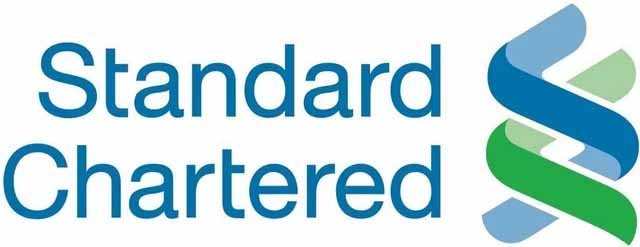A new research by Standard Chartered Bank has projected that Nigeria’s export trade would hit $112 billion in 2030, topping the volume for Africa.
The research, which is titled, “Future of Trade 2030: Trends and Markets to Watch,” also projected that the global exports trade would grow from $17.4 trillion to $29.7 trillion between 2021 and 2030.
At a 9.7 percent yearly growth rate, the report sees Nigeria’s export volume peaking at $112 billion by 2030.
The report stated that Nigeria’s future growth would be driven by its current and future investments in its digital and physical infrastructure, and improvements in its business environment.
“Driven by its Industrial Revolution Plan and National Digital Economy Policy (2020-2030), Nigeria has shifted its focus towards promoting digital transformation, financial inclusion, and physical infrastructure development with a series of billion-dollar projects.”
”These efforts are forecasted to facilitate Nigeria’s plans for economic diversification and non-petroleum growth.”
“Nigeria is actively nurturing its industrial sector through an array of tax and tariff breaks as well as reduced red tape and protectionist measures.”
“It is working to streamline its trade procedures, lower trade-related costs, and reduce border delays. The government also offers a wide range of incentives, such as unrestricted profit repatriation, to attract FDI.”
According to the report, the projected global trade growth would be driven largely by 13 markets.
These markets are Bangladesh, Hong Kong, India, Kenya, Mainland China, and Malaysia. Others are Nigeria, Saudi Arabia, Singapore, South Korea, United Arab Emirate (UAE), and Vietnam.
The report which was commissioned by Standard Chartered and prepared by PwC Singapore is based on an analysis of historical trade data and projections until 2030, as well as insights from a survey of more than 500 C-suite and senior leaders in global companies.
The report noted that global trade will be reshaped by five key trends. They include the wider adoption of sustainable and fair-trade practices; a push for more inclusive participation; greater risk diversification; more digitisation, and a rebalancing towards high-growth emerging markets.
“Globalisation will drive the next decade of growth. Despite the recent push towards onshoring, growth corridors of the future will not just be intraregional – they will be global spanning Africa-East Asia; ASEAN-South Asia; East Asia-Europe; East Asia- Middle East; East Asia-Europe; South Asia-US,” the report reads.
“Asia, Africa, and the Middle East will see a ramp-up in investment flows, with 82 percent of respondents saying they are considering new production locations in these regions in the next five to 10 years, supporting the trend towards rebalancing to emerging markets and greater risk diversification of supply chains.”
In his part, Korede Adenowo, executive director, corporate commercial and institutional banking, Standard Chartered Nigeria, said the predicted doubling of global trade offers strong evidence that globalisation is still working, despite recent dislocation.
“In addition to the growth of intra-regional trade pathways, the corridors of the future will still cut across continents,” he said.
“Against this backdrop, we continue to focus on making globalisation work for more markets and businesses, ranging from micro to multinational, and drive a more sustainable and inclusive model for global trade.
“This includes growing our range of sustainable finance solutions to help our corporate clients implement sustainable and fair-trade practices across their supply chains.”



